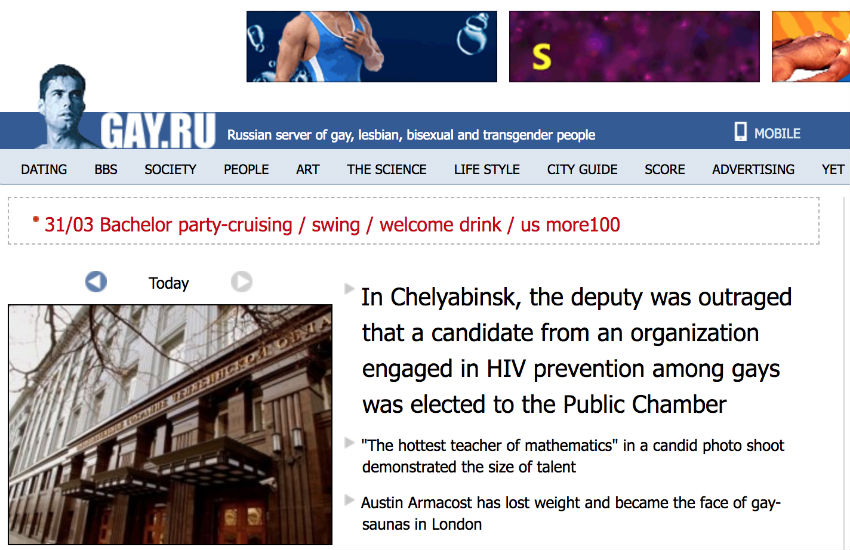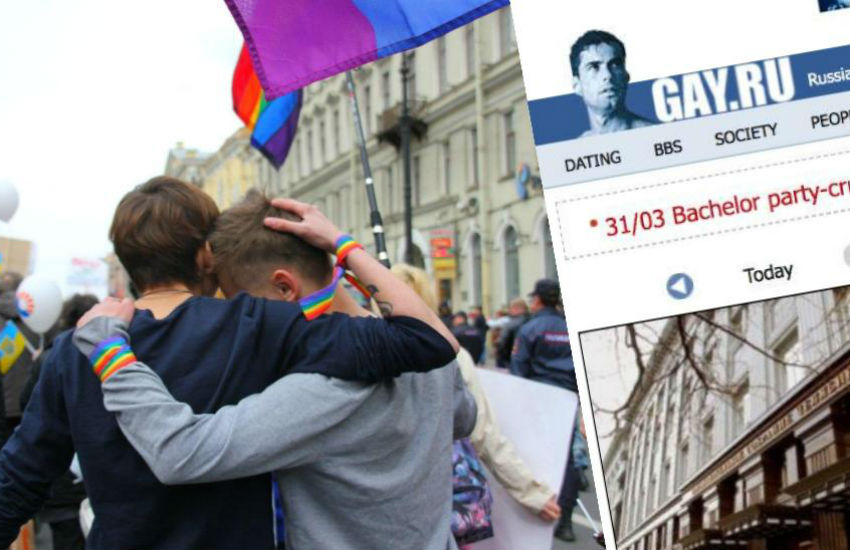LGBTI site Gay.ru. | Photo: Maria Komarova / Flickr
A court order warns of an official blacklisting to Russia’s longest running LGBTI site, Gay.ru.
The Federal Service for Supervision of Communications, Information Technology and Mass Media (Roskomnadzor) cited a violation of the country’s laws against promoting non-traditional sexual relationships, commonly known as ‘gay propaganda’ laws.
It will add the website to Russia’s centralized internet blacklist – known as the ‘single register’ – effectively shutting it down. It’s a real-time list used for the country-wide censorship of individual URLs, domain names, and IP addresses.

Screen shot of Gay.ru home page. | Photo: Gay.ru
According to the official warning, the website ‘contains information that spreads propaganda of non-traditional sexual practices, and its dissemination in Russia is prohibited.’
It also said: ‘[It] may incite interest [for minors] to try non-traditional sexual practices which is a real threat to their health.’
The warning requires the website to delete all ‘prohibited’ information within one day of receiving the notice. But it does not say exactly what is in violation.
Gay.ru: 20 years of history
Based in Moscow, the LGBTI site started in 1997 and quickly established itself as an important voice for LGBTI people in Russia.
According to Ed Mishin from Gay.ru: ‘It features more than 15,000 articles and documents in Russian and 500 in English.’
Over three million visitors use the site yearly, totaling over 30,000 hits a day.
President Vladimir Putin signed the gay propaganda law on 30 June 2013. Since then, Russia has blocked numerous gay-friendly initiatives from entering the country, including Disney movie Beauty and the Beast, Overwatch comic, the Warwick Rowers calendar and gay fish, to name a few.
It also resulted in the fining of activist Evdokia Romanova after she shared pro-LGBTI news articles to her Facebook account.
The European Court of Human Rights ruled against the infamous law in June last year. Nearly every judge in the ruling said Putin’s law was ‘discriminatory, reinforced stigma and prejudice and encouraged homophobia.’







